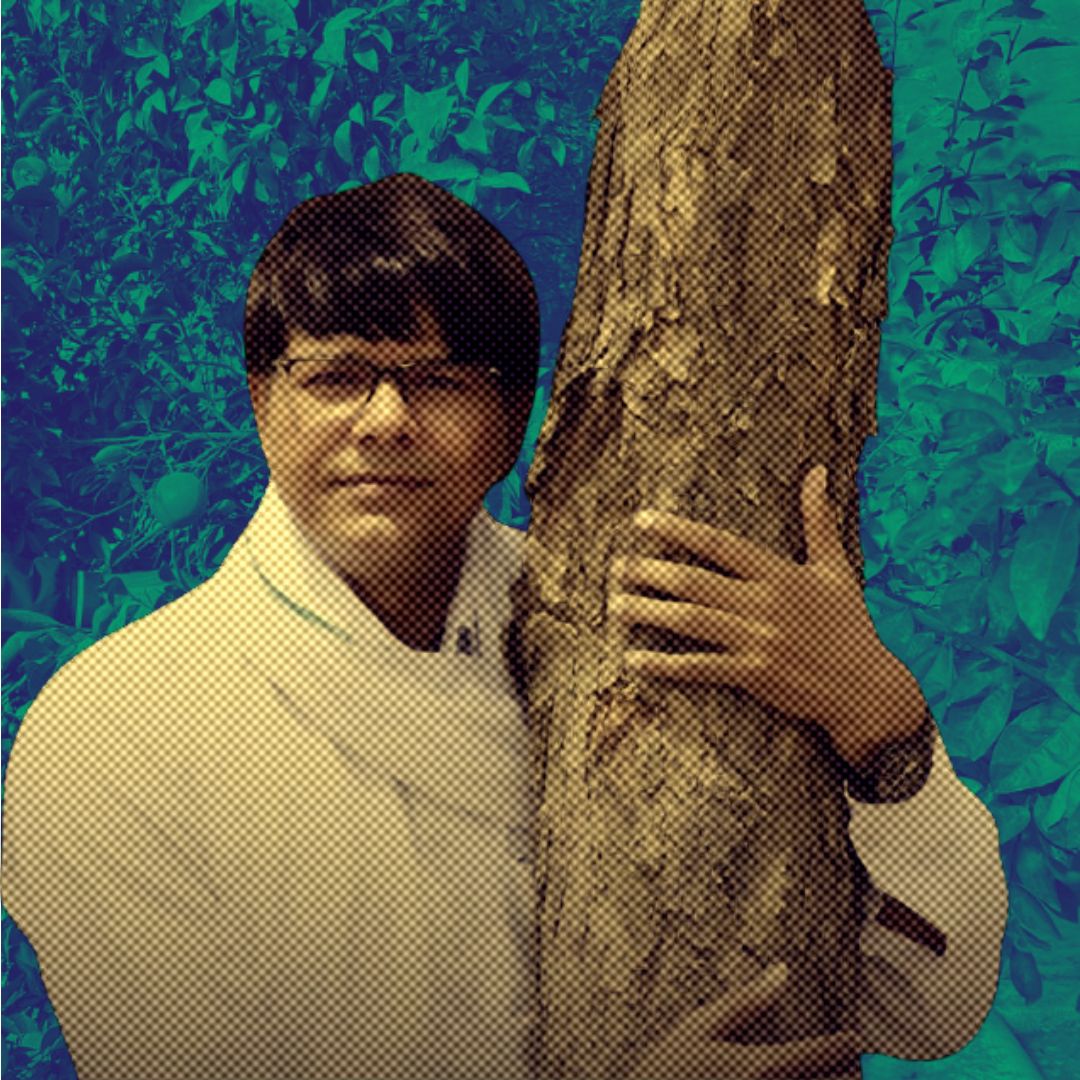Shyam Sunder Jyani, an environmentalist and academic from Rajasthan, has emerged as a leading figure in afforestation efforts through his innovative concept of “Familial Forestry.” Recognised for his significant contributions to environmental conservation, he was awarded the Land for Life Award by the United Nations Convention to Combat Desertification in 2021. His work has led to the revival of neem trees and the planting of over 625,000 saplings across Rajasthan, transforming the arid landscape into a greener habitat.
Early Life and Academic Background
Born in 1979 in the village of 12 TK, Sri Ganganagar district, Shyam Sunder Jyani grew up in a rural farming family. His journey into environmental activism began in 2003 when he and a group of students undertook the task of reviving dying neem trees within the campus of Dungar College, Bikaner, where he currently serves as an associate professor of sociology. Despite facing initial resistance from some faculty members who questioned his motives, Jyani found support among students, particularly those from marginalized communities.
The Concept of Familial Forestry
In 2006, Jyani conceptualised “Familial Forestry,” which encourages families to plant and care for trees as if they were family members. This initiative not only promotes tree planting but also integrates environmental education into daily life. By involving local families in afforestation efforts, Jyani aimed to create a sense of responsibility and connection to nature.
The pilot project launched in the village of Himtasar saw 120 households participating, where families were encouraged to plant fruit-bearing trees at their homes. This approach served dual purposes: combating desertification while improving local nutrition through the availability of fresh fruits. By educating families on proper tree care, Jyani increased sapling survival rates from a mere 20-30% to an impressive 90%.
Expanding Reach and Impact
Jyani’s efforts have been monumental in scaling up tree planting initiatives. By 2023, his campaigns had resulted in the planting of over 3.8 million saplings, with participation from more than 1 million families across 15,000 villages in northwestern Rajasthan. The greenery created through these efforts is now visible from satellite imagery as a “green wall” at the margins of the Thar Desert.
To further engage communities, Jyani incorporated tree planting into cultural celebrations like Diwali and launched a mobile app called “My Forest” to raise awareness about afforestation benefits. On Gandhi Jayanti in 2019, he enrolled 150 schools in Rajasthan for a massive tree-planting drive, fostering environmental consciousness among students.
Recognition and Awards
In addition to the Land for Life Award received at the 15th UN Conference on Desertification held in Abidjan, Côte d’Ivoire, Jyani has been honoured with various accolades for his contributions to environmental conservation. His work exemplifies how grassroots movements can effectively combat climate change and promote sustainable practices.
Promotion of Sustainable Practices
Beyond tree planting, Jyani has been an advocate for promoting millets as a sustainable food source. In 2023, he initiated campaigns encouraging traditional uses of millets during cultural rituals and launched “Raabri Day,” celebrating millet-based drinks.
His commitment extends to restoring degraded lands; he has successfully transformed an 84-hectare area affected by illegal mining into a thriving ecosystem through community involvement and innovative agricultural practices.
The Vision Ahead
Shyam Sunder Jyani’s vision is clear: he aims to create an ecological civilization where families actively participate in nurturing their environment. He believes that by treating trees as integral members of the family, communities can foster a deeper connection with nature and promote biodiversity.As he continues his work, Jyani remains dedicated to expanding his initiatives into urban areas and engaging more communities in sustainable practices. His journey serves as an inspiring example of how individual commitment can lead to monumental changes in environmental conservation.
The Logical Indian’s Perspective
At The Logical Indian, we celebrate Shyam Sunder Jyani’s remarkable contributions to environmental activism through Familial Forestry. His dedication to restoring ecosystems while empowering local communities reflects our values of empathy and sustainability. In an era where climate change poses significant challenges, Jyani’s work reminds us that collective action can lead to lasting positive change.
How can we all contribute to similar initiatives that promote sustainability and biodiversity? We invite you to share your thoughts and experiences in the comments below!












